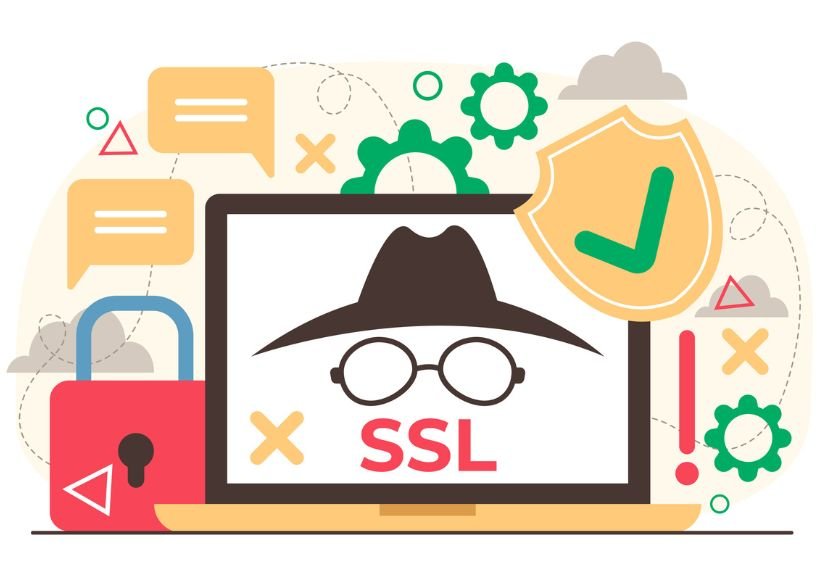What Is SSL, And Why Do We Require It?

Ever noticed a padlock icon next to a website address? That’s SSL working quietly to protect your data while it travels between your browser and the website’s server.
Table of Contents
What Is SSL?
An SSL (Secure Sockets Layer) is a security technology for encrypting the connection between your device and the website you are visiting. This means no one — not even hackers or internet providers — can access the information you send or receive.
When a website has SSL, it will have “https://” instead of “http://” in the address. The “s” is for secure.
Why SSL Is Important
If a website does not utilize SSL technology, the information you provide (like your name, login, or card information) will be sent over the network in plain text. Anyone lurking on the network can read it.
In the case of SSL, the information is scrambled by encryption and is unreadable by someone who might be able to see it.
This is why most websites today require an SSL certificate – not just e-commerce sites. Building trust is essential, and that means visitors can browse your site knowing it is safe for them.
How Does SSL Work?
When you visit a site, your browser and the site perform a quick digital handshake. This handshake confirms the site’s identity and elicits a secret encryption key.
From that moment on, every piece of data exchanged — messages, passwords, transactions — is exchanged securely.
You can utilize a certificate checker, such as an SSL Certificate Checker, to ensure whether or not the site’s security is valid and up to date.
SSL vs TLS: The Modern Version
When people talk about SSL today, they are actually referring to TLS (Transport Layer Security) — the successor to SSL, and these systems use stronger methods of encryption. However, we still refer to it on a commercial basis as an SSL proprietary certificate.
So, if you buy an SSL certificate for your website, you are genuinely getting TLS security.
How SSL Helps Your Website
SSL serves a purpose beyond just securing and encrypting data; it also makes your site more trustworthy.
Here’s how this is accomplished:
- Protects data – it encrypts login credentials, inquiry forms, and payment information
- Establishes trust – your visitors see the padlock icon indicating your site is secure
- Improves SEO – Google ranks HTTPS sites higher than non-HTTPS sites
- Prevents warning – browsers will now label any HTTP site as “not secure”
- Meets compliance laws – if your site collects personal or payment information, then you should really have an SSL in place to be compliant.
HTTPS vs SSL
A common question is “What’s the difference between HTTPS and SSL?”.
HTTPS is the secure version of a web address.
SSL is the technology that makes HTTPS secure.
Simply: HTTPS = HTTP + SSL.
Where SSL Is Used
SSL is used anywhere data moves between users and servers — on websites, apps, payment gateways, email servers, and even internal systems.
If your website collects form data or has a login page, you need SSL.
What Happens Without It
Without SSL, your website loses user trust. Visitors may leave when they see “Not Secure” warnings, and search engines may lower your ranking.
Data theft risk also rises — especially on public Wi-Fi or shared networks.
Final Thoughts
SSL is not a fancy add-on; it is the bedrock of web security.
It ensures the safety of your users, enhances SEO, and establishes credibility for your company.
Install an SSL certificate for your website today if you haven’t already. It’s the easiest way to start developing a more secure and trustworthy online presence.
